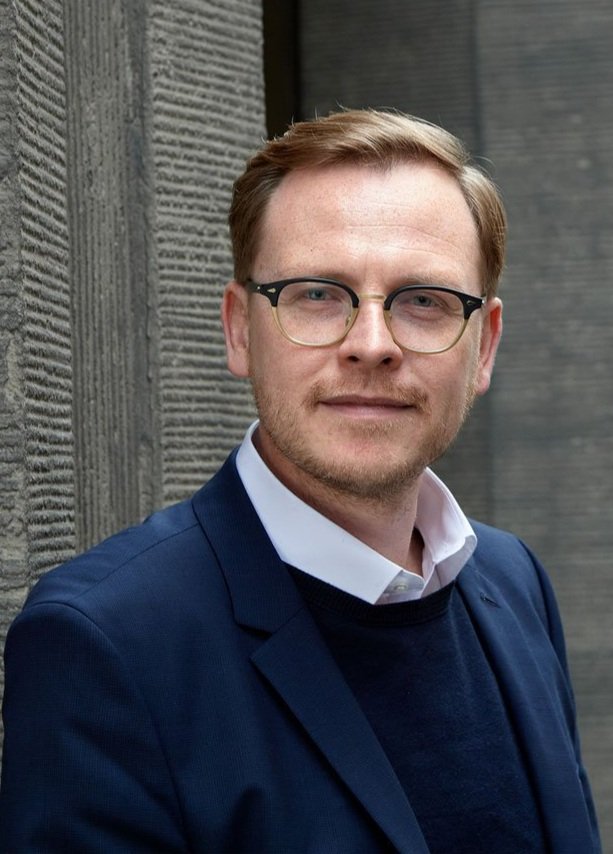In the run-up to the 2024 and 2025 elections in the United States, Europe, and Germany, Alexander Görlach, journalist and adjunct professor for democratic theory at NYU Gallatin School, invites intellectuals from both sides of the Atlantic to help us understand the current state of our democracies and dive deep into the democratic theory and history of democracies to contextualize the challenges to democracies currently being discussed.
Upcoming Events
This discussion investigated the role and status of truth in democracies in Europe and the U.S. in times of "fake news" and "alternative facts". In conversation with Sophia Rosenfeld, Walter H. Annenberg Professor of History at the University of Pennsylvania, Alexander Görlach discussed how societies can maintain these democratic structures under intense stress and pressures, juxtaposed with the truth and probability, science, faith, and requirements of a liberal democracy. Organized with generous support by the Kurt Forrest Foundation.
How Liberal is the Future? Positioning Democracy in the Time to Come
September 11, 2023
Alexander Görlach and philosopher Markus Gabriel discussed the foundations of a liberal anthropology: Can people have freedom, and if so, how much? Does technology help or does it impose invisible shackles on humankind? Ultimately, the "elephant in the room" is the question of whether liberal democracy has a future.
Articles
About the “Let’s Talk Democracy” Experts
Alexander Görlach is an adjunct professor at NYU Gallatin School where he teaches democratic theory. Prior to that, he had various positions as visiting scholar and as fellow at Harvard University in the United States, Cambridge University, and Oxford University in the United Kingdom. He is a senior fellow to the Carnegie Council for Ethics in International Affairs in New York and a senior advisor to the Berggruen Institute in Los Angeles. Alexander holds a ThD in comparative religion and a PhD in linguistics. His academic interests include democratic theory, politics and religion, and theories of secularism, pluralism, and cosmopolitanism. In the academic year 2017-18 he was a visiting scholar at National Taiwan University and City University Hong Kong. Since then he focuses on the rise of China and what it means for the democracies in East Asia. Alexander Görlach is an honorary professor of ethics and theology at Leuphana University in Lüneburg, Germany. Alexander Görlach is the founder of the debate magazine The European, that he also ran as its editor-in-chief from 2009 to 2015. Today he serves as an op-ed contributor to the New York Times, Neue Zürcher Zeitung, and the South China Morning Post. He is a columnist for the business magazine Wirtschaftswoche, Deutsche Welle, and Focus Online. He is a frequent commentator on German News Channel WeLT TV.ander Görlach
Markus Gabriel is a German philosopher and author at the University of Bonn. He holds the chair in epistemology, modern, and contemporary philosophy at the University of Bonn and also serves as the Director of its International Centre for Philosophy. He works mainly in epistemology and metaphysics (ontology) drawing his inspirations from the history of philosophy (in particular, 19th century Post-Kantian philosophy, Heidegger, and Wittgenstein). He has a particular interest in problems of skepticism and their history. His recent books are Transcendental Ontology: Essays in German Idealism and Die Erkenntnis der Welt. Eine Einführung in die Erkenntnistheorie (Knowledge of the World. An Introduction to Epistemology).
Sophia Rosenfeld is Walter H. Annenberg Professor of History and Chair of the Department of History at the University of Pennsylvania, where she teaches European and American intellectual and cultural history with a special emphasis on the Enlightenment, the trans-Atlantic Age of Revolutions, and the legacy of the eighteenth century for modern democracy. She is the author of A Revolution in Language: The Problem of Signs in Late Eighteenth-Century France (Stanford, 2001); Common Sense: A Political History (Harvard, 2011), which won the Mark Lynton History Prize and the Society for the History of the Early American Republic Book Prize; and Democracy and Truth: A Short History (Penn Press, 2019). Her articles and essays have appeared in leading scholarly journals, including the American Historical Review, the Journal of Modern History, French Historical Studies, and the William and Mary Quarterly, as well as such outlets as The Washington Post, Dissent, and, frequently, The Nation. From 2013 to 2017, she co-edited the journal Modern Intellectual History. In 2022, A Cultural History of Ideas, a 6 volume book series covering antiquity to the present for which she was co-general editor with Peter Struck (Penn, Classical Studies), appeared with Bloomsbury and won the Association of American Publishers’ award for best reference work in the humanities. Her writing has been translated into French, Spanish, Portuguese, Korean, and Chinese.
More episodes will be added on a rolling basis. Sign up for our newsletter to be notified.





Donec id justo non metus auctor commodo ut quis enim. Mauris fringilla dolor vel condimentum imperdiet.